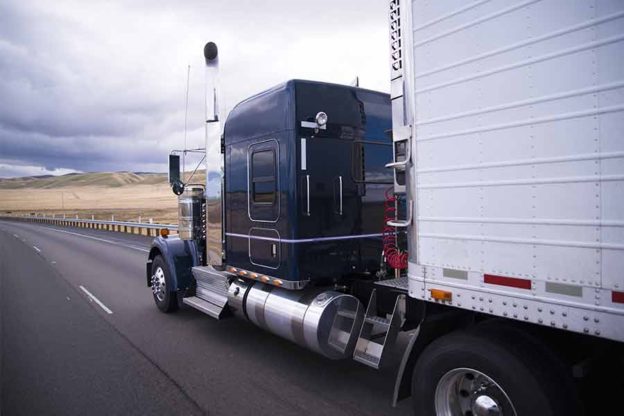All small businesses experience both financial plateaus and expansive growth, each phase proving to be a challenge. Small business owners may struggle to stay afloat during scarcity but fight to scale extreme growth during unprecedented expansion. In both cases, business owners may look to financial services for assistance and direction.
Trucking companies looking to tackle new opportunities or struggling to maintain profitability may look to freight factoring for financial assistance. In the content below, we discuss factoring as a financial service, recourse vs non recourse factoring, and how to determine if non recourse freight factoring is right for the long-term growth of your company.
What is Freight Factoring?
Freight factoring is a financial service whereby a factoring organization purchases invoices from a business at a discount from the face value of the invoice. The organization purchasing the invoices is called the “factor,” while the discount amount is coined the “factoring fee.” The factoring company then waits to get paid for the invoice.
How Does Freight Factoring Benefit Trucking Companies?
Freight factoring encourages cash flow. Once the factor purchases the invoice, the trucking company receives enough capital to begin hauling another load. As a result, the trucking company no longer needs to wait for the client to pay the invoice – which are oftentimes delayed – to seize available opportunities and continue company growth. Therefore, with freight factoring, unpaid invoices become immediate cash.
Factoring receivables allows your trucking company to cover daily expenses, such as repairs or fleet maintenance, fuel, or payroll, and plan for long-term success without going into debt or diluting equity ownership in your company.
What is Recourse?
Although subjective in definition between varying organizations, most factoring companies agree that the term “recourse” defines who holds the liability and the action that occurs if the factoring client’s customer (or account debtor) does not pay the debt.
For example, if a freight factoring business purchases a discounted invoice from a trucking company in need of cash and the trucking company’s client never pays the invoice, recourse is the resulting action. According to the recourse factoring agreement, the factoring business is entitled to get paid by the trucker, and the trucking company is required to repurchase the invoice from the factoring company.
Some factoring companies allow recourse to occur by providing another invoice as repayment or simply removing money from a reserve account. Regardless, the trucking company is ultimately held responsible for paying the invoice amount in full.
Benefits of Recourse Factoring
Recourse factoring offers significant benefits for small trucking businesses by providing immediate cash flow from unpaid invoices. This financial solution allows truckers to access working capital without waiting for customer payments, ensuring they can cover expenses such as fuel, maintenance, and payroll. By converting receivables into cash quickly, recourse factoring helps small trucking companies maintain smooth operations and seize new opportunities without the stress of delayed payments. Additionally, it simplifies cash flow management, enabling business owners to focus on growth and customer service
What is Non Recourse Freight Factoring?
Non recourse freight factoring is another popular factoring option. Non recourse factoring is a type of financial assistance where the factor bears all collection risk on purchased invoices. Thus, if the account debtor does not pay his or her invoice, the trucking company is not held responsible to pay the invoice. In fact, the factor cannot demand payment on any purchased invoices if payment is not received due to credit reasons.
Benefits of Non Recourse Factoring
Nonrecourse factoring provides invaluable benefits to businesses by offering immediate cash flow while also protecting against the risk of non-payment. Unlike recourse factoring, where businesses must repay the advance if the customer defaults, nonrecourse factoring shifts this risk to the factoring company. This financial solution ensures that businesses can maintain steady cash flow and cover essential expenses without the burden of potential bad debt. By mitigating credit risk, nonrecourse factoring allows business owners to focus on growth and operations with greater peace of mind.

Non Recourse vs Recourse Factoring
As discussed, the primary difference between non recourse and recourse factoring is the responsibility of the trucking company to pay recourse. The use of reserve accounts is another distinction. Recourse factoring will collect a reserve account in the event that the account debtor does not pay. As mentioned, the factor may withdraw money from the reserve if an invoice is left unpaid.
However, non recourse factoring does not incorporate a reserve because it is not necessary. Alternatively, a refund is not demanded if account debtors cannot pay their bills.
When is Non Recourse Right for Your Trucking Company?
Evaluating whether non recourse freight factoring is right for your trucking company begins with answering a few questions. If your trucking company is currently experiencing one of the following scenarios, non recourse freight factoring may be an ideal course of action for your organization.
Are you a startup trucking company in need of immediate cash?
Non recourse factoring can be an excellent opportunity for startup trucking companies to front the day-to-day expenses of managing a business. Every small business startup is a financial investment, and non recourse factoring is a good avenue to begin purchasing a fleet, hiring drivers, and completing jobs.
Are you an established trucking company experiencing extreme economic difficulty?
In times of economic distress, non recourse factoring can save a trucking company! In some situations, invoice factoring may be the only avenue of cash available to a trucking company, allowing it to stay afloat and prepare in advance for the economy to turn around.
Have you inquired about a traditional bank loan, but your bank is not willing to lend?
The ability to qualify for factoring services is primarily based on the creditworthiness of your customers – not you. Thus, trucking companies have a better chance of receiving financial assistance from a factoring company than a bank, especially if the company has not had enough time to build substantial creditworthiness. Additionally, factoring companies are generally much quicker during setup than applying and getting approved for a bank loan, allowing for immediate cash flow.
Do you spend more time chasing past-due receivables than performing jobs?
Time spent chasing past-due receivables can significantly stunt company growth! When opportunities for expansion present themselves, your company should be positioned to seize the opportunity without feeling burdened by unpaid invoices.
Do you find yourself feeling at-risk of clients paying late or not paying at all?
If you find your company drowning when a client pays late (if at all), non recourse factoring may be the perfect solution to achieve a greater level of business stability. Freed from managing operations at the whim of account debtors, you may be comfortable to invest in business expansion and long-term success.
Find the Right Freight Factoring Program at Advanced Commercial Capital
At Advanced Commercial Capital, our non recourse freight factoring program is one-of-a-kind. We charge no setup fees, offer low, competitive rates, and never force clients into long-term contracts. We are dedicated to providing the highest quality factoring services for as long as the financing solution is best for your trucking company!
If you have any questions about how non recourse freight factoring can benefit your company, please feel free to reach out at 855.465.4655 or via our online contact form today!










